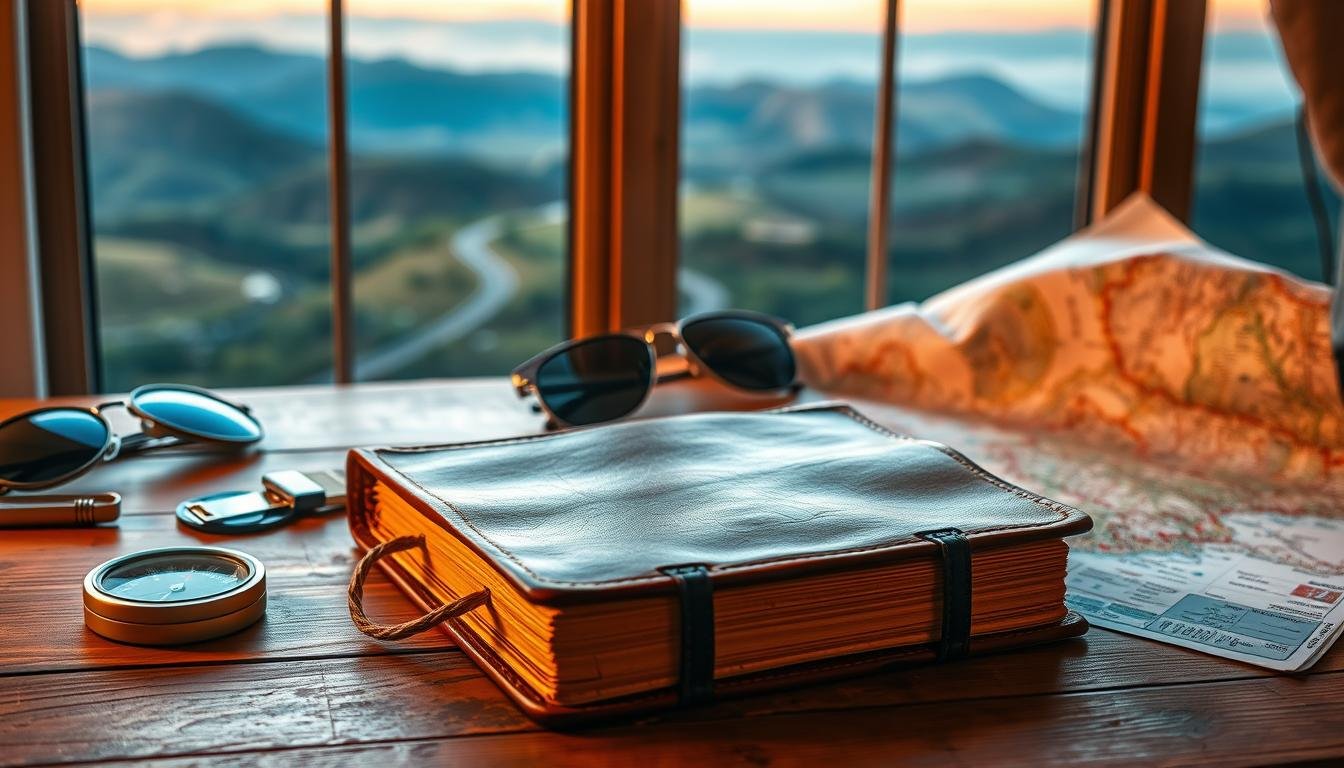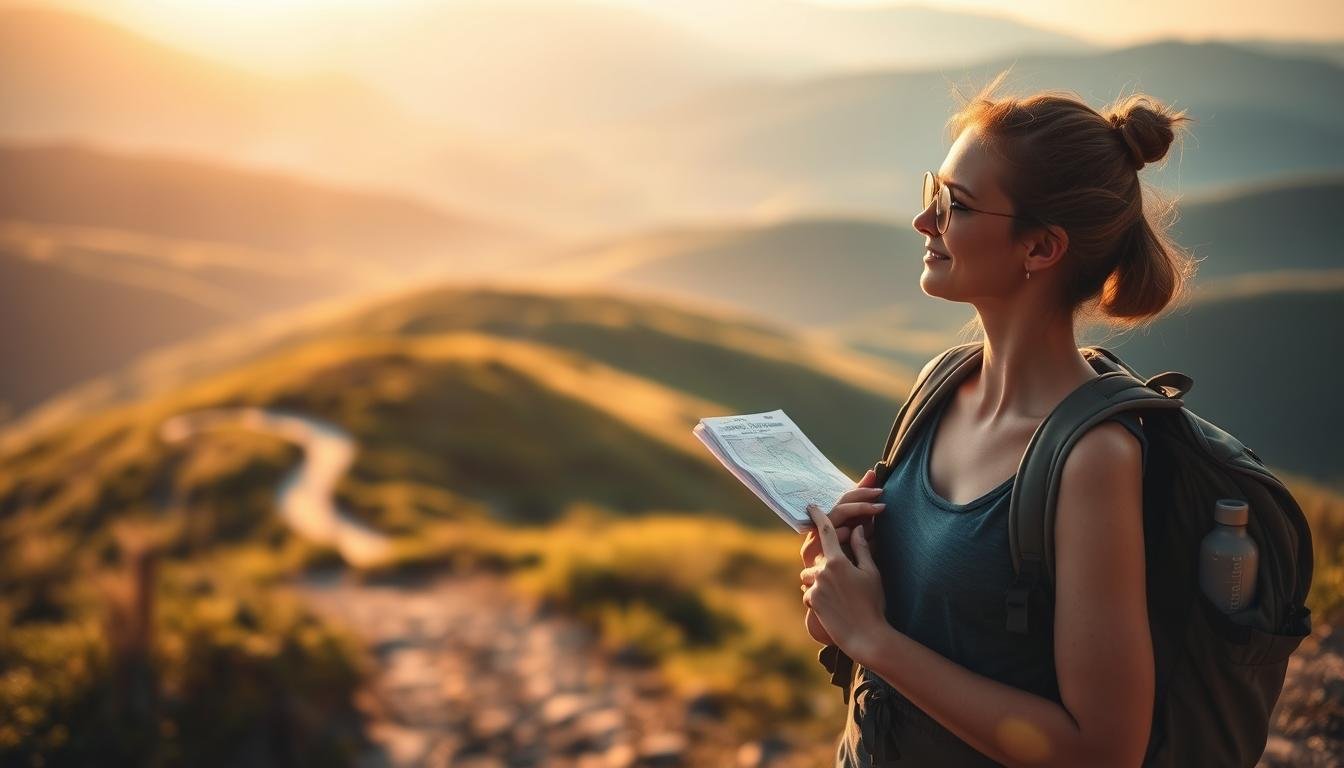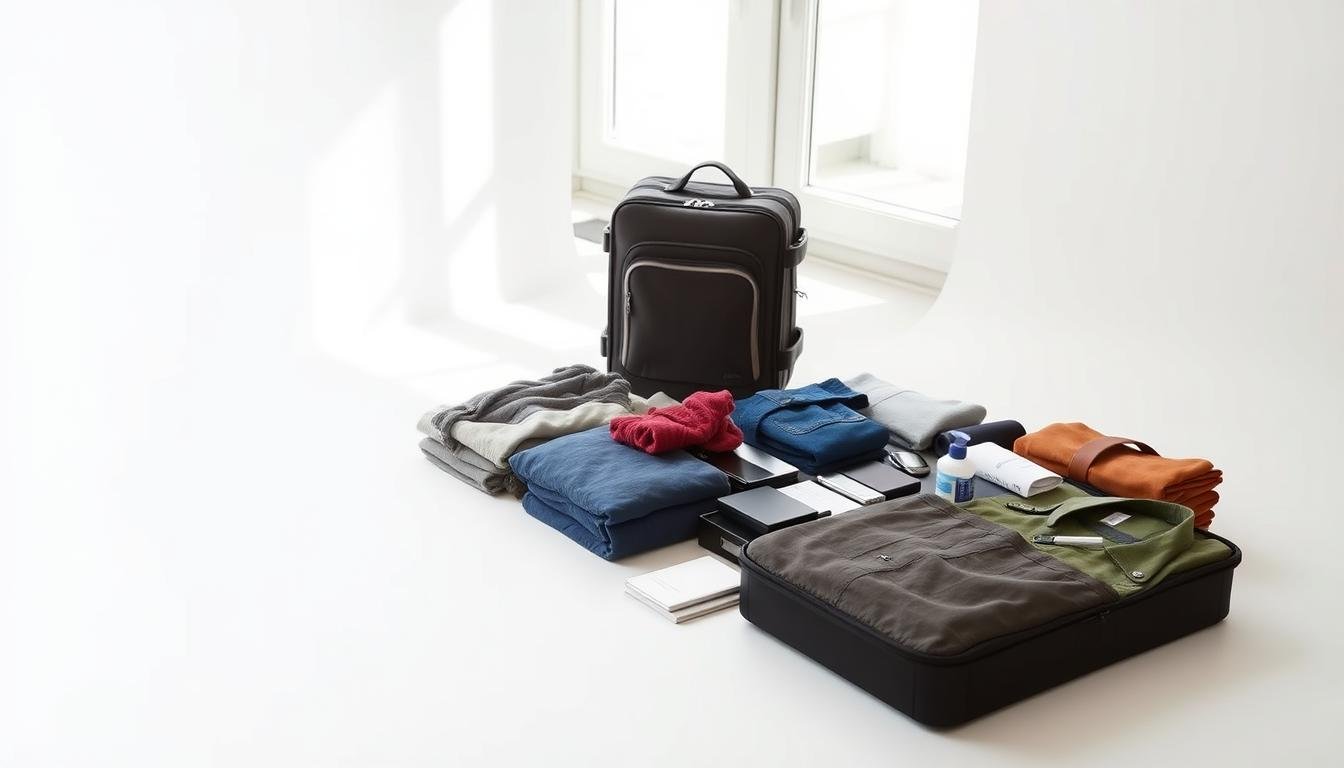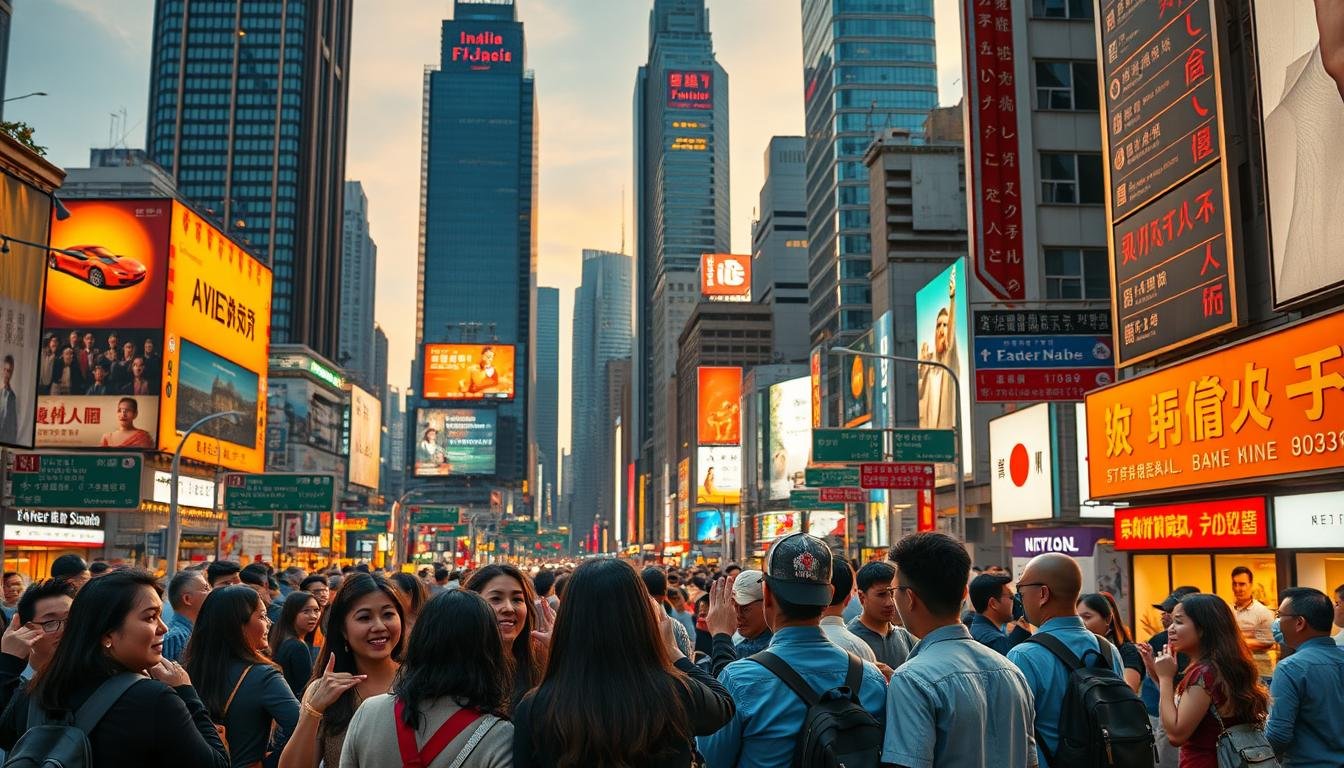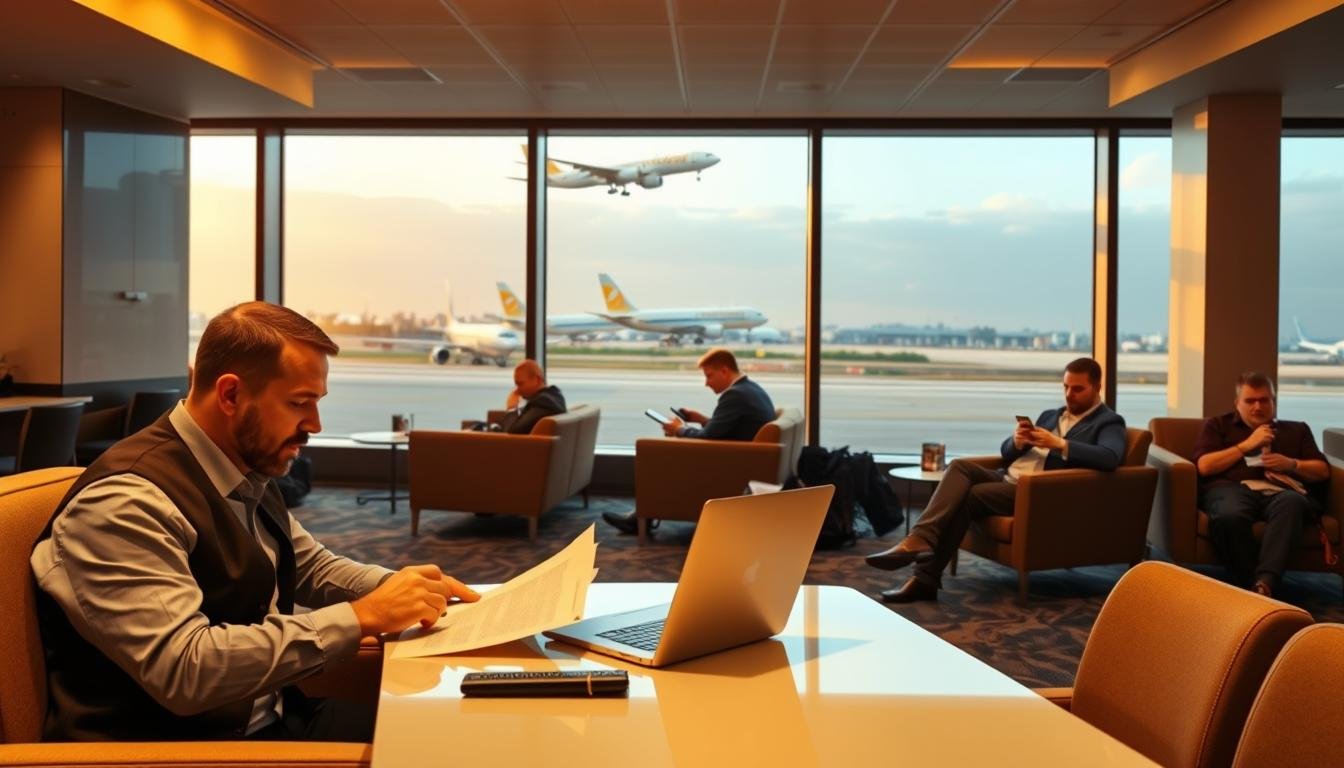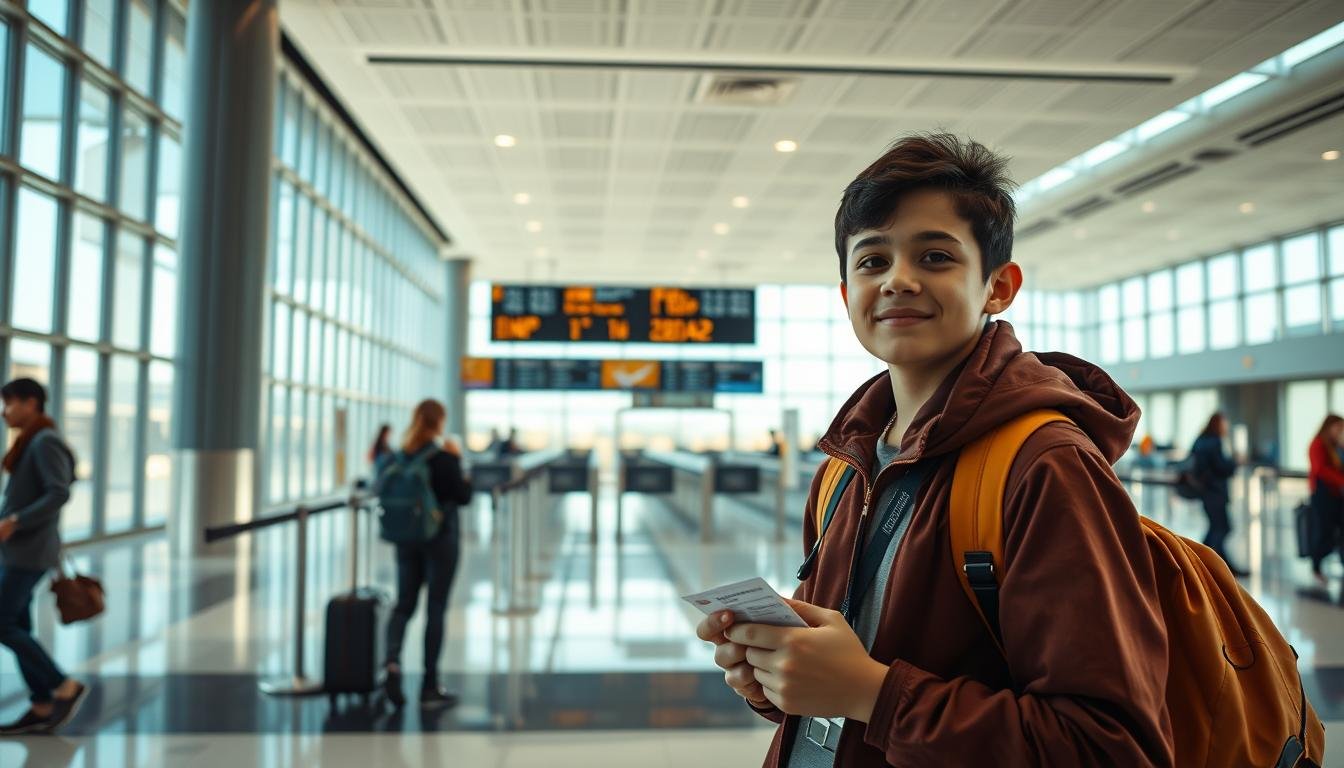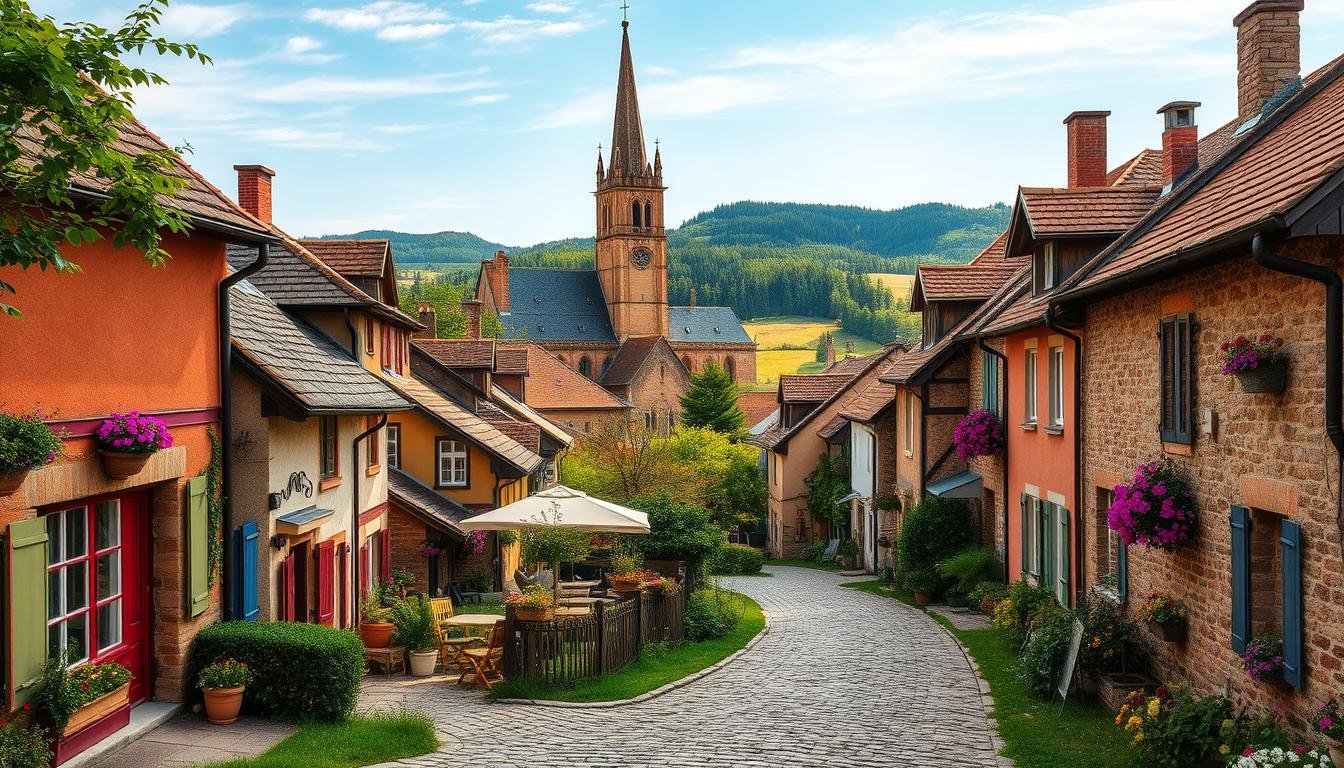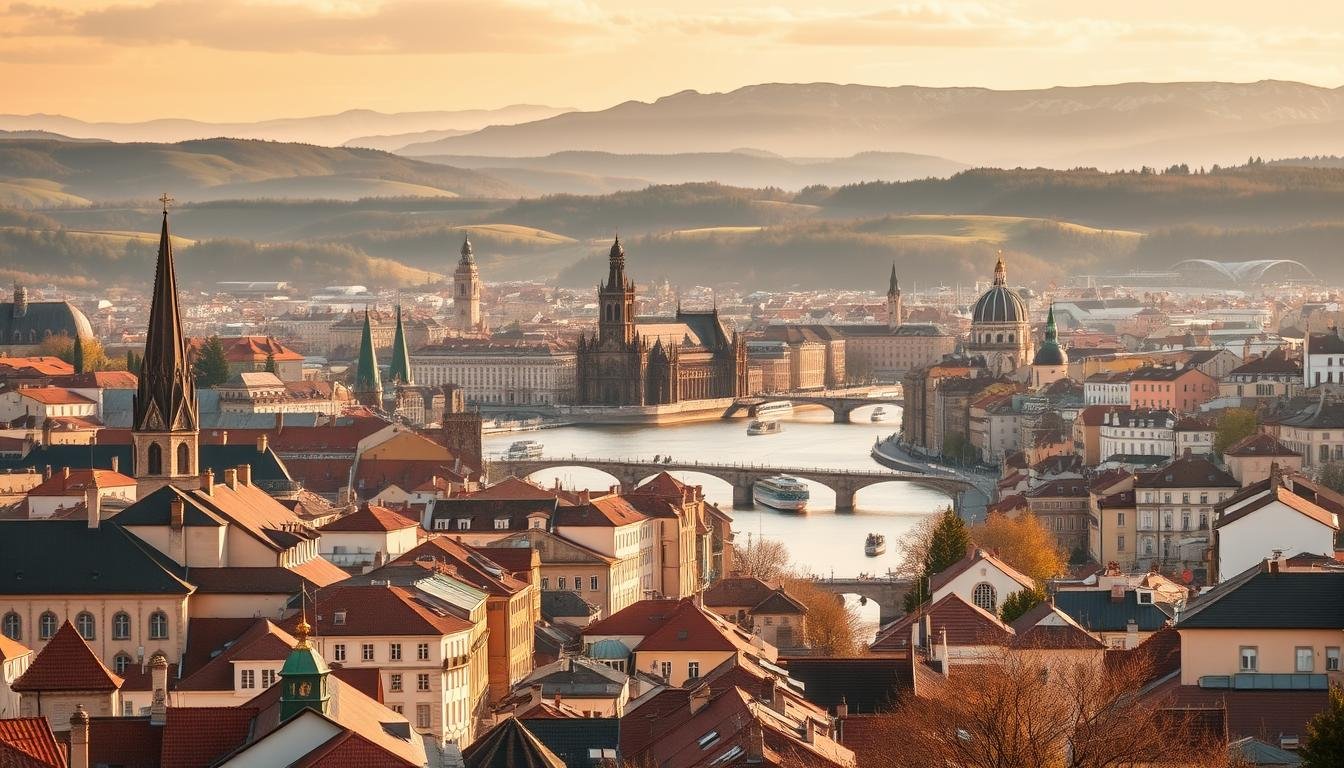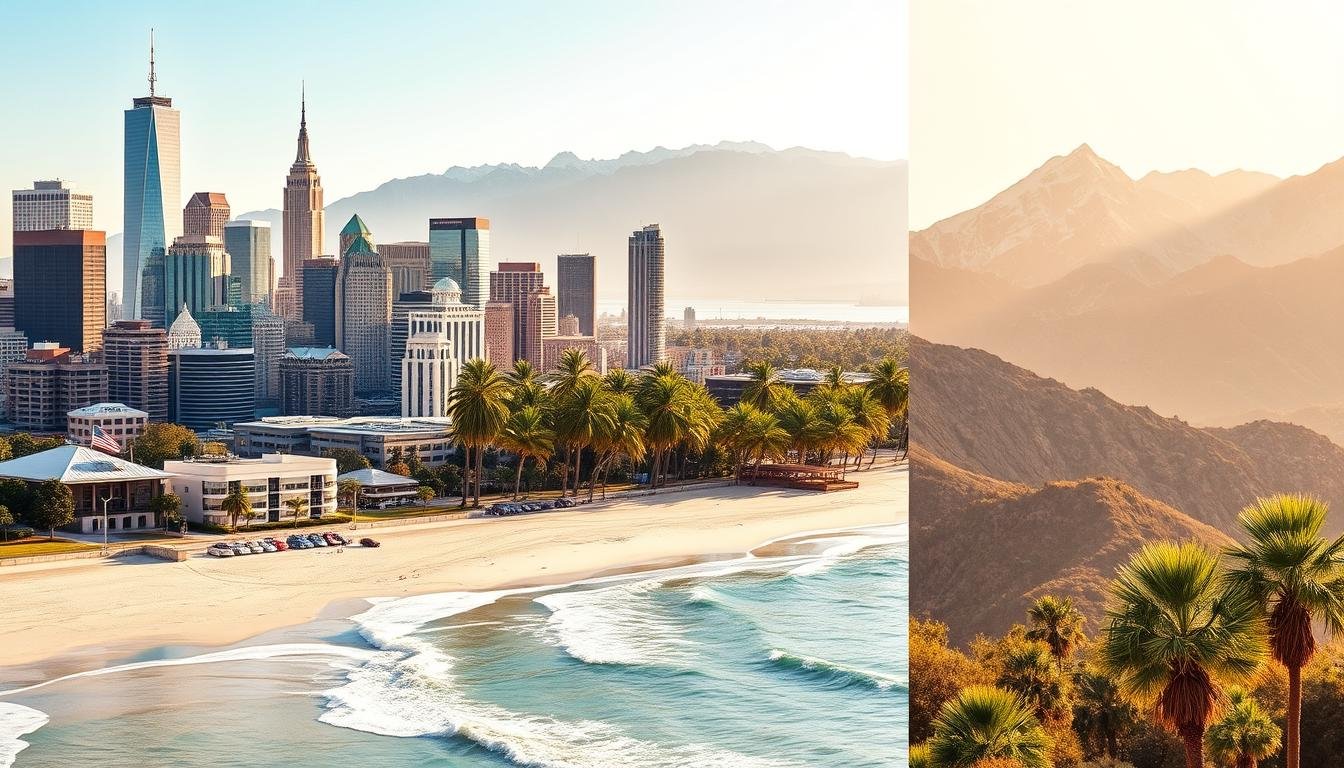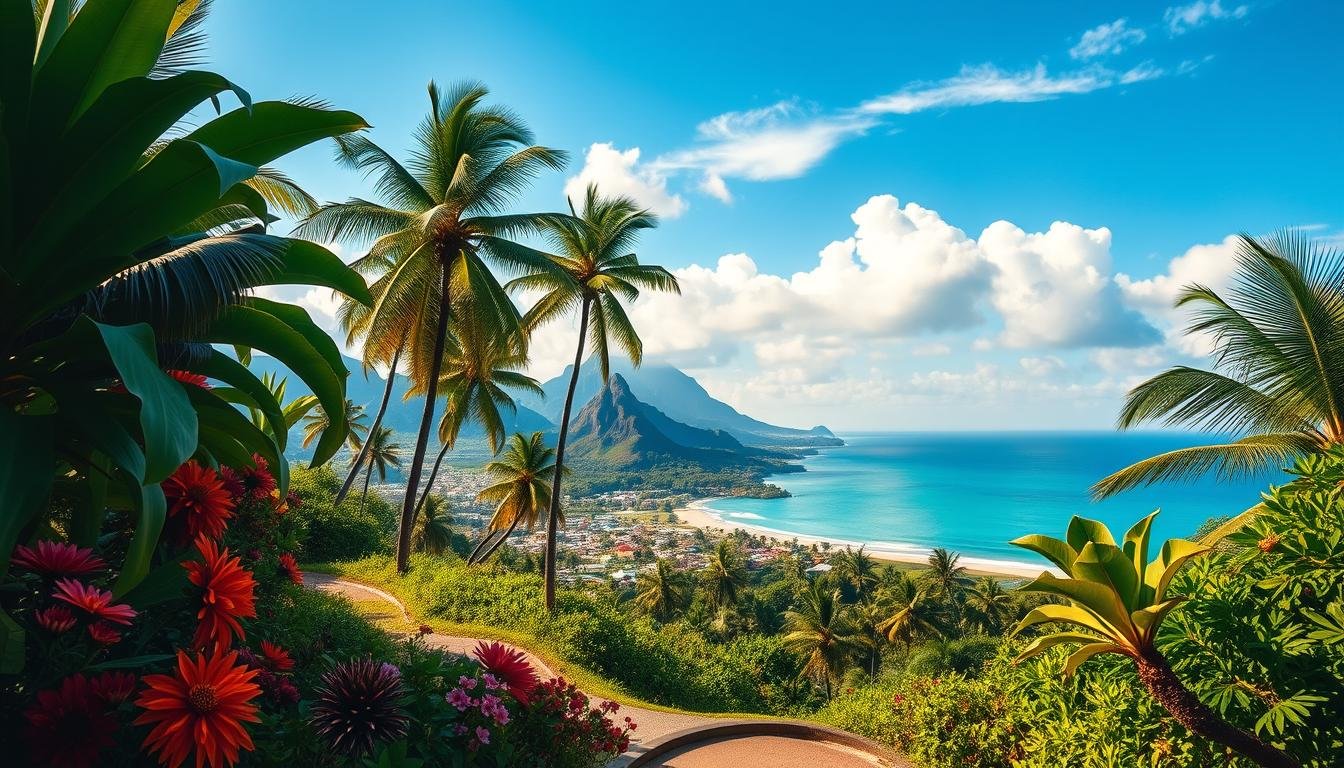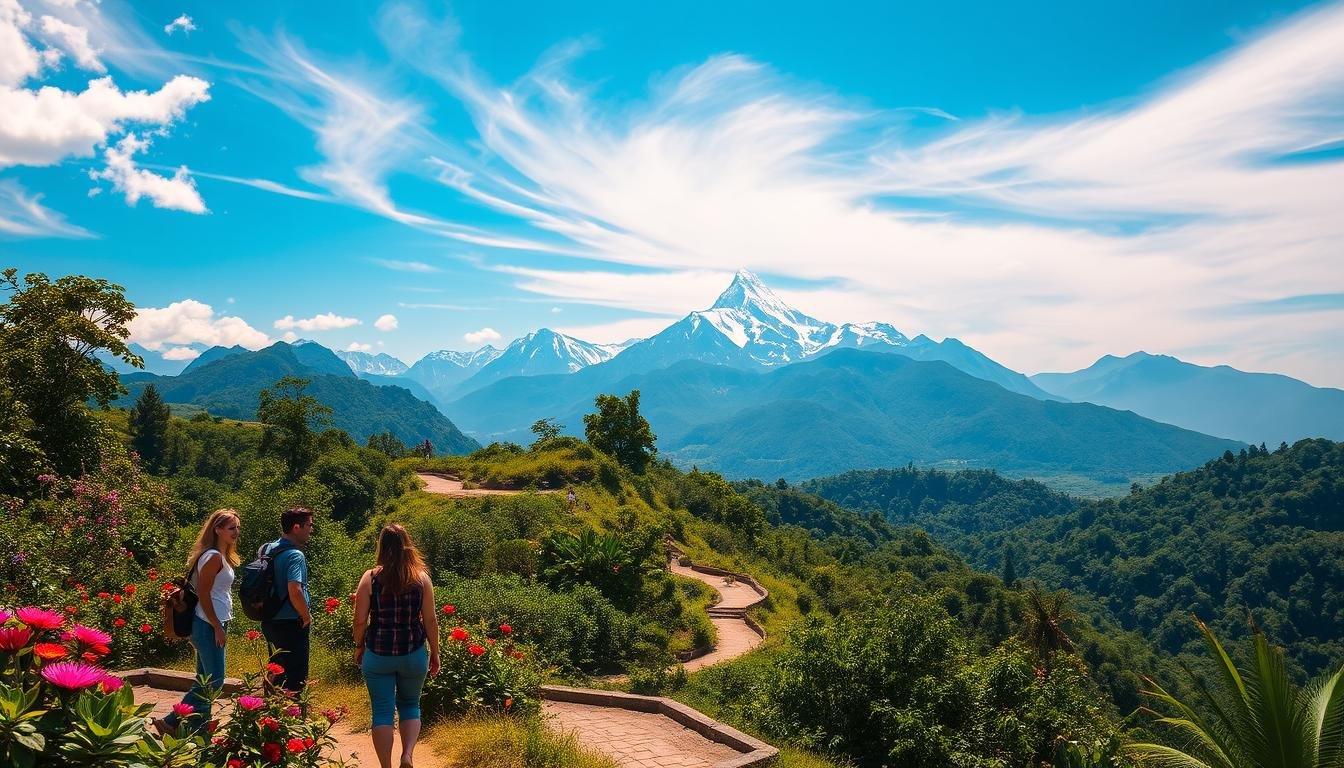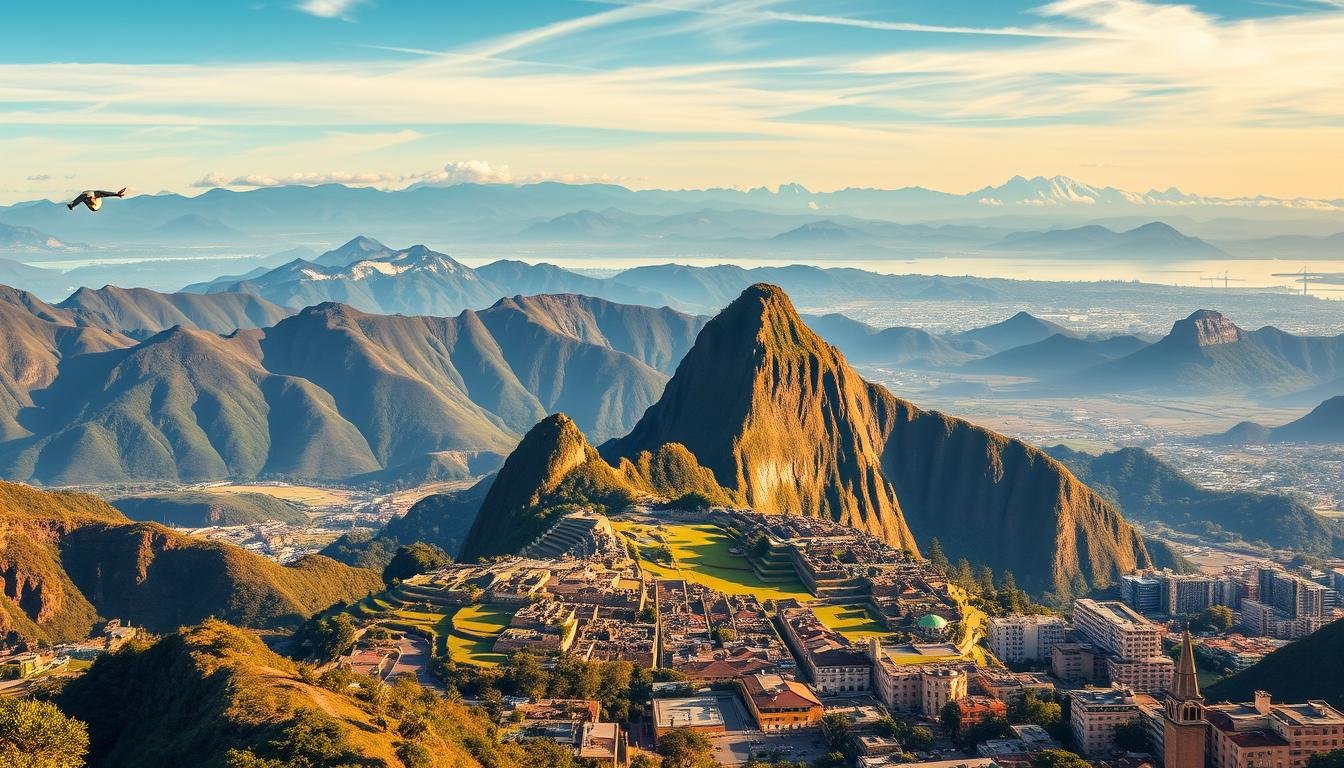Thinking back on my travel experiences, I remember the thrill and the unknown of new places. Starting out, it’s easy to feel lost with all the choices before a trip. That’s why I’ve created this guide to help you travel with ease.
In this guide, we’ll share key tips for a stress-free adventure. Whether you’re a newbie or just want to be more prepared, this guide has got you covered. It’s packed with advice to help you enjoy your travels to the fullest.
Key Takeaways
- Understand the importance of planning and research
- Learn how to pack efficiently for your trip
- Discover the benefits of being flexible with your travel plans
- Find out how to stay safe while traveling
- Get tips on managing your finances while abroad
Getting Started: Planning Your First Adventure
Planning your first adventure is exciting. With these tips, you’ll make memories to last a lifetime. Start by choosing a destination, setting a budget, and planning your itinerary.
Choosing the Right Destination for Beginners
It’s important to pick a destination that’s easy for beginners. Look for places that are welcoming and offer fun activities. Whether you love nature or city life, there’s a perfect spot for you.
Beginner-Friendly Destinations in the US
The US has many great places for beginners. Orlando, Florida is great for theme park lovers. New Orleans, Louisiana is perfect for those who love history and culture. These cities offer fun, learning, and relaxation.
International Options for First-Timers
For a trip outside the US, consider Canada or Mexico. Quebec City in Canada mixes French and Canadian cultures. Cancun in Mexico has beautiful beaches and a friendly vibe. Both are great for first-timers.
Setting a Realistic Budget and Timeline
Before planning, set a budget and timeline. Think about transportation, where you’ll stay, food, and activities. A good budget lets you enjoy your trip without stress.
Creating a Flexible Itinerary
Planning is key, but being flexible is also important. Travel plans can change, and being adaptable is essential. Make an itinerary that allows for spontaneity and flexibility.
Follow these top travel tips for novices to prepare for your first adventure. The goal is to have a fun and stress-free trip. Plan well, take your time, and ask for advice from seasoned travelers.
The Best Travel Tips for Beginners: Expert Advice for First-Timers
Starting small is key to a stress-free adventure. When you’re new to travel, it’s easy to feel overwhelmed. But with expert advice, you can feel confident on your first trip.
Starting Small and Building Confidence
One top travel tip for beginners on a budget is to start with short trips. This helps you gain experience and confidence without spending a lot. Try a weekend getaway to a nearby city or national park.
Beginner travel hacks like packing light and using public transport can also help a lot.
- Research your destination well to know local customs and transport.
- Pack essentials like a portable charger, comfy shoes, and a money belt.
- Leave some room in your plan for spontaneity and flexibility.
Learning from Experienced Travelers
Listening to seasoned travelers can teach you a lot. I talked to travel expert Sarah Johnson about first trips. She said, “Don’t be afraid to try new things. And always stay positive, even when things go wrong.”
When I asked how she was doing, she said, “I’m doing great, thanks for asking! I love sharing my travel stories.” I thanked her for her time and advice.
“The biggest adventure you can take is to live the life of your dreams.” –
Managing Expectations vs. Reality
It’s important to manage your trip expectations versus reality. Beginner travel hacks like being ready for delays and having a backup plan can help. For example, learn the local language and customs when traveling abroad to avoid misunderstandings.
By starting small, learning from others, and managing your expectations, you’ll have a great first trip. Stay flexible, be open-minded, and enjoy the journey!
Essential Documents and Preparations
Before you start your trip, make sure you have everything you need. Knowing what you need can avoid problems later on. It’s important for new travelers to understand these basics.
Passport, Visas, and ID Requirements
Your passport is key. It should be valid for at least six months after you plan to leave. Check if you need a visa for your destination and apply early if you do. Always carry extra ID and copies of your passport.
Tip: Keep three copies of your passport and remember your passport number for extra safety.
Travel Insurance: Why It’s Non-Negotiable
Travel insurance is a must for unexpected costs. It covers medical bills, trip cancellations, and lost luggage. Pick a policy that fits your needs.
“Travel insurance is a safety net that can save you from financial ruin in case of unforeseen circumstances during your trip.”
Health Preparations and Medications
Getting ready for your health is important. Talk to your doctor or a travel clinic about shots and meds for your trip.
Vaccinations and Health Checks
Some places need special shots. Get a health check-up early to get what you need.
Creating a Travel Medical Kit
Make a medical kit with basics like pain relievers and band-aids. Include your meds and a list of emergency contacts.
| Document/Preparation | Description | Tips |
|---|---|---|
| Passport | Main travel document | Valid for 6+ months beyond trip dates |
| Visa | Required for certain countries | Apply in advance |
| Travel Insurance | Covers unexpected expenses | Choose extensive coverage |
Packing Smart: What to Bring and What to Leave Behind
Packing smart is key to a great trip. I’ll share my best tips for beginners. It’s all about being ready without overdoing it.
Creating the Ultimate Packing List
First, get some packing cubes. They help organize your stuff. Think about what you’ll do and the weather where you’re going.
Packing Light: Quality Over Quantity
Learning to pack light takes time. Choose quality over quantity. Pick a few outfits that can be mixed and matched. It saves space and makes choosing outfits easier.
Essential Items First-Time Travelers Often Forget
First-timers often forget important items. Don’t forget a portable charger, travel adapter, and money belt. These small things can greatly improve your trip.
Follow these beginner travel hacks for a stress-free trip. Saving money on luggage fees is a big plus.
Packing smart is an art. With these travel tips for beginners on a budget, you’re set for a great journey.
Navigating Transportation Like a Pro
For many beginners, traveling can seem daunting. But with the right strategies and tools, it becomes easier. You can navigate airports and other transportation systems with confidence.
Finding the Best Flight Deals
To find great flight deals, use tools like Skyscanner, Google Flights, and Momondo. These sites let you compare prices and find the best deals. Also, check nearby airports for even more savings.
| Flight Comparison Tool | Features | Price Range |
|---|---|---|
| Skyscanner | Comprehensive search, price alerts | Free |
| Google Flights | Calendar view, flexible dates search | Free |
| Momondo | Price comparison, hotel search | Free |
Airport Tips and Tricks
Navigating airport security can be tough. Here are some tips to make it easier:
Security Checkpoint Strategies
Wear easy-to-remove shoes and avoid metal items. Also, consider TSA Precheck for faster screening.
Making Layovers Comfortable
Use layovers to relax or work. Look for airport lounges, eat, or take a nap before your next flight.
Getting Around at Your Destination
After arriving, figuring out transportation is key. Research your options like renting a car, public transport, or ride-sharing.
Accommodation Options for Every Budget
Choosing where to stay is a big part of planning your trip. The right place can make your trip better, but the wrong one can cause stress.

Hotels vs. Hostels vs. Vacation Rentals
Travelers often face choices like hotels, hostels, and vacation rentals. Hotels provide a classic stay with many amenities. Hostels are cheaper and perfect for meeting others. Vacation rentals feel like home, great for longer stays or family trips.
Hotels are convenient but can cost a lot. Hostels are good for solo travelers or those watching their budget. Vacation rentals let you cook and live like a local, but might not have hotel services.
Booking Strategies and Timing
Booking early can save you a lot of money. Use sites like Booking.com and Expedia to compare prices and find deals. Set up price alerts to know when prices go down.
Being flexible with your travel dates can also help. Staying off-season or on less busy days can be cheaper.
Safety Considerations for Your Stay
Safety is key when picking where to stay. Do your research and read reviews from different places. Look for places with good security, like 24-hour front desks.
Also, think about the location. Choose a place that’s safe and well-lit, like a busy area. Make sure the place has safety items, like fire extinguishers.
Money Matters: Budgeting and Financial Tips
Managing your money well is key to a stress-free trip. As a beginner traveler, knowing how to handle money abroad is important. It helps you avoid stress and extra costs.
Currency Exchange and Banking Abroad
It’s smart to have some local currency when you arrive. You can exchange a bit of money before you go or use an ATM. Remember, your bank might charge extra for foreign transactions.
Using a debit or credit card with no foreign fees can save you money. This way, you won’t face unexpected charges.
Avoiding Common Financial Pitfalls
Be careful with your stuff, like in crowded places. Use a money belt or a secure wallet to keep your cash and cards safe. Also, tell your bank where you’re going to avoid card issues.
Travel Tips for Beginners on a Budget
Traveling cheaply needs some planning. Look for affordable places to stay, like hostels or vacation rentals. Plan your trip to include free or cheap things to do.
Finding Deals and Discounts
Always search for deals on things to do. Look online or use travel apps for coupons or special offers. This can help you save a lot.
Free and Low-Cost Activities
Check out local markets, visit public parks, or go on a self-guided tour. These are great ways to see the culture without spending a lot. Sometimes, the best experiences come from just being in the local scene.
Staying Safe and Healthy While Traveling
Exploring new places is exciting, but keeping safe and healthy is key. As a beginner, it’s easy to forget about risks. Knowing about them can greatly improve your trip.
Common Safety Concerns and How to Address Them
Learning about local customs and laws is important. It helps you avoid offending people or breaking rules. Also, knowing about local safety tips can keep you out of danger.
- Be aware of your surroundings, specially in crowded places.
- Keep your valuables safe and think about using a money belt.
- Stay updated with local news and demonstrations.
Dealing with Health Issues Abroad
Before you go, talk to your doctor about health concerns. Make sure you have all needed vaccinations. Also, pack a travel health kit with basics like pain relievers and band-aids.
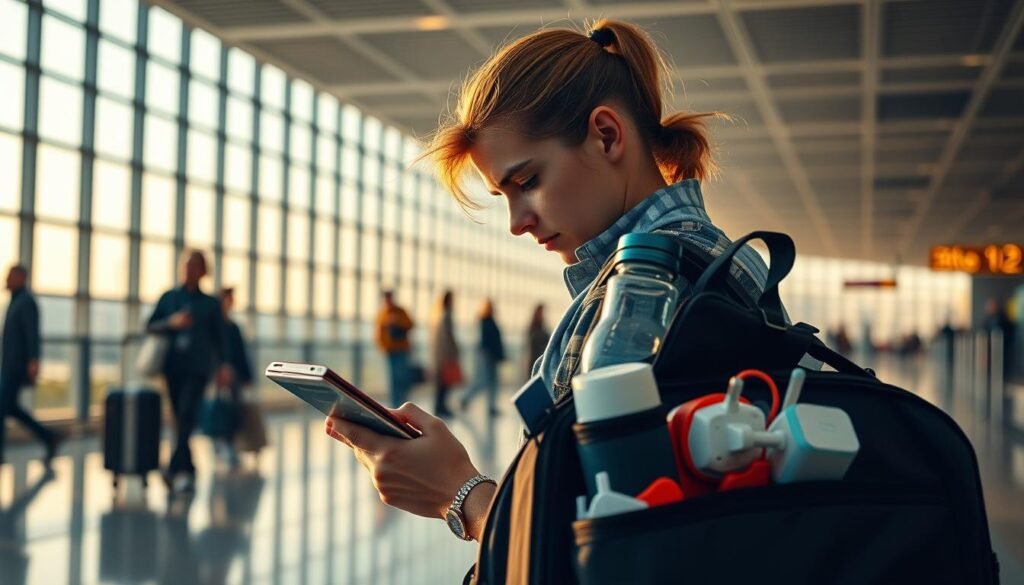
Emergency Contacts and Procedures
Leave a copy of your travel plans with someone you trust. Include flight and hotel info. It’s also smart to sign up with your government’s travel advisory program.
| Emergency Contact | Phone Number | |
|---|---|---|
| Local Emergency Services | 911 (or local equivalent) | – |
| Your Embassy | +1-888-407-4747 (US example) | contact@embassy.gov (example) |
| Travel Insurance Provider | +1-800-123-4567 (example) | claims@insurance.com (example) |
Being ready and informed can help you have a safe and healthy trip. Remember, essential travel tips for starters include being mindful of your surroundings and staying healthy.
Making the Most of Your Experience
To truly enjoy your travels, it’s essential to embrace the unknown and be open to new experiences. As a beginner, your journey is not just about reaching your destination. It’s also about the experiences you have along the way.
Embracing Cultural Differences
One of the joys of traveling is immersing yourself in different cultures. Be open to trying new foods, attending local festivals, and learning a few key phrases in the local language. This not only enriches your experience but also shows respect for the local culture.
Connecting with Locals and Fellow Travelers
Engaging with locals can greatly enhance your travel experience. Use platforms like Couchsurfing or Meetup to connect with people who can offer insider tips and share their knowledge of the area. Apps like Spotted by Locals can also provide valuable insights into local hotspots.
Documenting Your Journey
Capturing memories of your trip is a great way to reflect on your experiences. Here are a few ways to document your journey:
- Take photos of the places you visit
- Keep a travel journal
- Share your experiences on social media
Photography Tips for Beginners
When it comes to photography, focus on the lighting and try to capture moments that tell a story. Don’t be afraid to experiment with different angles and compositions.
Journaling and Social Media Sharing
Writing down your thoughts and experiences in a journal can be a therapeutic way to process your travels. Sharing your adventures on social media can also help you connect with others who share your interests.
| Documentation Method | Benefits |
|---|---|
| Photography | Captures visual memories, allows for creative expression |
| Journaling | Provides a personal record of experiences, aids reflection |
| Social Media Sharing | Connects you with like-minded travelers, shares your experiences |
Conclusion: Embarking on Your Journey with Confidence
As you get ready for your first adventure, remember to be proactive. This will help you have a stress-free trip. Follow the best travel tips for beginners to make your journey smooth and fun.
Start by making a checklist of important travel documents. Also, research local customs and etiquette. Don’t forget to check out resources like MoneySmart to compare travel insurance policies easily.
With the right mindset and preparation, you can enjoy your travels and make lasting memories. As a beginner, starting can seem scary. But with travel advice for newbies, you’ll soon become a seasoned traveler.
So, take a deep breath, pack your bags, and get ready for an adventure of a lifetime. With these tips, you’ll be confident, prepared, and ready to explore the world.
